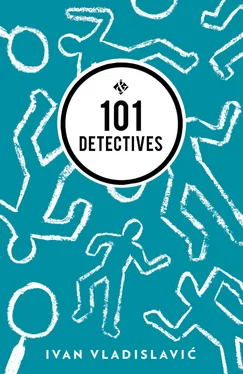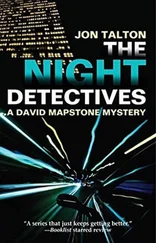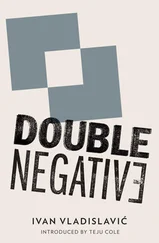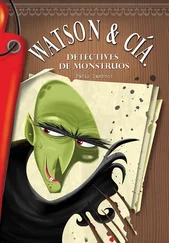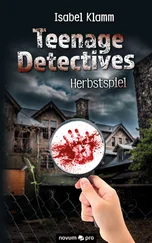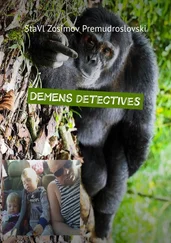Ivan Vladislavic - 101 Detectives
Здесь есть возможность читать онлайн «Ivan Vladislavic - 101 Detectives» весь текст электронной книги совершенно бесплатно (целиком полную версию без сокращений). В некоторых случаях можно слушать аудио, скачать через торрент в формате fb2 и присутствует краткое содержание. Год выпуска: 2015, Издательство: And Other Stories Publishing, Жанр: Современная проза, на английском языке. Описание произведения, (предисловие) а так же отзывы посетителей доступны на портале библиотеки ЛибКат.
- Название:101 Detectives
- Автор:
- Издательство:And Other Stories Publishing
- Жанр:
- Год:2015
- ISBN:нет данных
- Рейтинг книги:4 / 5. Голосов: 1
-
Избранное:Добавить в избранное
- Отзывы:
-
Ваша оценка:
- 80
- 1
- 2
- 3
- 4
- 5
101 Detectives: краткое содержание, описание и аннотация
Предлагаем к чтению аннотацию, описание, краткое содержание или предисловие (зависит от того, что написал сам автор книги «101 Detectives»). Если вы не нашли необходимую информацию о книге — напишите в комментариях, мы постараемся отыскать её.
and
, invites readers to do some detective work of their own. Each story can be read as a story, but many hide clues and patterns. Whether skewering extreme marketing techniques or constructing dystopian parallel universes, Vladislavic will make you look beyond appearances.
101 Detectives — читать онлайн бесплатно полную книгу (весь текст) целиком
Ниже представлен текст книги, разбитый по страницам. Система сохранения места последней прочитанной страницы, позволяет с удобством читать онлайн бесплатно книгу «101 Detectives», без необходимости каждый раз заново искать на чём Вы остановились. Поставьте закладку, и сможете в любой момент перейти на страницу, на которой закончили чтение.
Интервал:
Закладка:
In the moment when the sheaf of papers was visible above the lectern, seven people in the audience assessed how thick it was and thus how long the reading might last. Yet the calculation was not a sign of impatience or boredom on their part, nor was there any indication of this on the part of anyone else. The room was silent and attentive. It was, thought Annemieke Vogel, who was reporting on the event for the Süddeutsche Zeitung , unusually silent for such a large crowd. Perhaps it was the effect of this slight woman and her whispery voice. Someone coughed quietly into a fist, a chair squeaked, and the audience seemed to suck in its belly and lean closer.
That soft, synthetic squeak ran like a skewer through Karolina Fischer, the events coordinator of the Literaturhaus. She remembered again a board meeting at which she had argued, in vain, that plastic seat covers were impractical (she could not say vulgar). But no one had taken her seriously. She had been made to feel petty, glances were exchanged, there she goes again. She’d had a point though. Usually it was not too bad in a crowd this size, which shuffled, rustled, coughed and scratched sufficiently to drown out the childishly obscene noises of the cushions, but in smaller gatherings it was embarrassing. Especially if the book was a serious one and there were no opportunities for laughter to break the tension. She would raise the matter at the next meeting. The chairs were three years old, they could replace or reupholster them now without appearing wasteful.
Intent though he appeared to be on the reading, as befitted a translator, Hans Günther Basch was studying the footwear of his friend Horst Grundmann, which the angle of his head had placed in his line of vision. Leather hiking boots with rubber soles. The man was a famous walker, always tramping through a forest or over a hill, restless and indefatigable. He would come back from a hike flushed and triumphant, with moss smeared on the seat of his pants and hillocks of snow on his toecaps, and tramp mud up and down the corridors of the Department to show that he had been abroad, that he was not some desk-bound egghead afraid of the outdoors. There was something embedded there in the treads of his boots, a brand name probably, in an oval frame. It really did look like a brand, like a sign you would burn into the hide of a cow. It was a sole that would make a deep impression in a flower bed beneath the window of a vicarage. Basch didn’t have the stomach for the hard-boiled private eyes the publishers were always pressing on him, but he liked the old-fashioned ones like Hercule Poirot and Father Brown. As he watched Grundmann’s boots swivelling on their heels — big feet, perhaps a 48, he thought — he wondered how often a footprint helped to catch a thief or a murderer. Did they really fill them with plaster of Paris and present them in court? There was probably some synthetic modern substitute, like resin or silicone. These days everything was a gel. Footprint, one said, although strictly it was a shoeprint, a soleprint.
While he was thinking this, Hans Günther’s eyes wandered to the glass wall that ran down one side of the room. There had been quite a bit of argument about that between the board and the architect. It would make the space cold, they said, especially in the winter. But the architect had argued that a place like the Literaturhaus needed to be open to the world, it was part of the symbolic logic of the building, and she was right, people often passed by outside during a reading and that sense of life going on, of the city outside, made the words on the page seem more vital. Not that there was anyone out there now: just the cold square covered in snow and the avenue of beeches with their skinny trunks and naked limbs.
Some familiar word, a husk of sense in the granular outflow of Maryam Akello’s reading, snagged Basch’s attention and he became aware of her voice again. What was that word? It sounded like magic or make-believe. A foodstuff. Some kind of millet? He remembered discussing it with her. She had come to see him at his apartment to iron out the problems with his translation. He’d cleared a space among the books and papers on the kitchen table, which was never used for eating at, and opened his working manuscript between them. It was stuck all over with notes and queries on yellow Post-its and they’d spent the entire morning going from one to the next. She had the Acholi typescript in a box file beside her, but she did not refer to it once. Perhaps she knew the text by heart. On the chair beside him lay the published English edition, also laden with notes in green, and the French one bristling with blue, but they did not open them either. While he raised his doubts and asked his questions, she pored over the German version as if she understood it, and he made notes and revisions on the manuscript with a pencil or a fountain pen, her English explanations and his German equivalents, often shadowed by question marks. The discarded Post-its, covered with deletions and options, heaped up in an ashtray at the corner of the table.
He invited her to stay for lunch, but her guardian was waiting for her at the hotel. They had to meet a photographer from Der Spiegel , and then they were leaving that very evening for Osnabrück, where she was doing a reading at the Felix Nussbaum Museum tomorrow, and so he walked her to the station at the end of the block and made sure she got on the right tram.
They parted cheerfully, anticipating a reunion soon enough when the book was published, but as he walked back home a dark mood settled over him. His legs and his heart grew heavy. He had held this feeling at bay all through the long months of work on the translation, forcing himself to keep his professional distance and focus on the job at hand. Meeting her in person, sitting with her at his kitchen table with their knees practically touching, had closed the space between them. It was unspeakable, what had happened to her; it could scarcely be imagined. Yet she had made something of it, she had written it down, without a trace of self-pity. He climbed the stairs to his apartment, and everything made him sad: the bicycles with their training wheels on the landings, the rubber overshoes in three sizes at the front door of the downstairs neighbour, like an illustration from The Story of the Three Bears , the sheen of the wooden balustrade under his hand, the glimpses of rooftops and chimneys through the windows. When he shut his front door behind him there were tears in his eyes, but he swallowed the sob pushing up in his throat. He could not weep when she herself was so composed. It would be an insult. Was it strength, this self-possession of hers? Or had something been undone in her, permanently disconnected, short-circuited? She gave away so little. It was as if she had told the story and kept it to herself at the same time. As if she had concealed it precisely by sharing it.
It’s a waltz, thought the young woman who had arrived late, as Akello came to the end of another page, peeled it over and went on. One two three, one two three.
Four of the page-counters estimated that Akello had reached the halfway mark and that she was now on the downhill slope.
Prof. Ziegler got an itch under her thigh but could not scratch it without annoying the woman beside her, who had already given her several cautionary glances. She was reminded again of poor Edward Sheldon, lying immobile on his catafalque in his Upper East Side apartment, unable to move a finger. He was lucky to have a squad of minders to minister to his needs, she thought, to have night nurses and cooks, and the money to pay them. But the word ‘lucky’ troubled her in relation to someone so direly afflicted. How frustrated he must have been. And then she wondered how he had passed water and whether he had bodily urges and what he did about them.
Читать дальшеИнтервал:
Закладка:
Похожие книги на «101 Detectives»
Представляем Вашему вниманию похожие книги на «101 Detectives» списком для выбора. Мы отобрали схожую по названию и смыслу литературу в надежде предоставить читателям больше вариантов отыскать новые, интересные, ещё непрочитанные произведения.
Обсуждение, отзывы о книге «101 Detectives» и просто собственные мнения читателей. Оставьте ваши комментарии, напишите, что Вы думаете о произведении, его смысле или главных героях. Укажите что конкретно понравилось, а что нет, и почему Вы так считаете.
